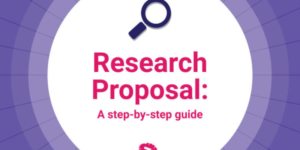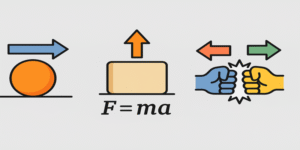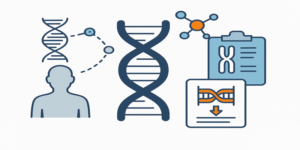The Power of Words: Influence, Persuasion, and Responsibility
Words are more than tools of verbal communication; they hold immense power to influence, persuade, and shape lives. They can uplift, inspire, and empower—or wound, divide, and mislead. From personal experience, I have seen how words can convince others to adopt beliefs, even when those beliefs are false. Once, in a casual conversation, I fabricated a story claiming that eating chocolate was more harmful than smoking. Shockingly, several friends believed me, and two even began smoking as a result. This revealed to me that the power of words, when used carelessly or dishonestly, can have life-altering consequences.
This article explores the influence of words on behaviour, the psychology behind language, their role in social and environmental change, their use as weapons or tools of healing, and finally, the ethical responsibility that comes with wielding such influence.
1.0 The Influence of Words on Behaviour
Language is one of the most powerful elements of human interaction. Our words shape perceptions of the world, define relationships, and influence behaviours. As I experienced when misleading friends, words delivered persuasively—even when false—can override rational thought.
Persuasion is a form of social influence guiding thought and action (Gass & Seiter, 2017). How a message is delivered determines whether it builds trust or erodes it. In my case, persuasive but false communication caused harm, reminding me that every speaker carries responsibility for their words.
Example: In marketing, companies often use carefully crafted words to influence consumer decisions. However, misleading advertising can damage both consumer trust and brand reputation, illustrating the double-edged nature of persuasive communication.
2.0 The Psychology Behind Words
Words trigger cognitive and emotional responses. I witnessed this with my young son. Frustrated with his habit of scribbling on walls, I snapped, “Are you stupid? Don’t ever do that again!” He defied me and repeated the behaviour. Later, when I spoke calmly—“Sweetie, don’t do that. You’re a big boy now”—he stopped.
This contrast demonstrates how positive communication is more effective than harsh words. Bandura’s (1977) social learning theory shows that people internalise behaviours through observing how authority figures communicate. Harsh words provoke resistance, while calm, respectful speech fosters compliance.
Example: In classrooms, teachers who encourage students with affirming words create stronger engagement and cooperation than those who rely on criticism. Gottman (2015) similarly stresses that relationships thrive on positive reinforcement, not negativity.
3.0 Words in Social and Environmental Change
Beyond personal interactions, words shape public discourse on global challenges. One area where this is evident is climate change communication. Despite the urgency of the crisis, many remain indifferent, partly because messages are presented in overly technical ways.
Nisbet (2009) argues that scientific communication often fails because it lacks emotional framing. People disengage when bombarded with jargon and graphs. Entman’s (1993) framing theory explains that the way information is presented—its “frame”—shapes interpretation. A message framed as “rising global temperatures” may seem abstract, but when reframed as “our children’s future is at risk,” it connects emotionally and motivates action.
Example: Campaigns that highlight how climate change threatens daily life—such as food supply or children’s health—are more successful in mobilising communities than those that rely solely on scientific data.
4.0 Words as Weapons or Tools of Healing
Words can harm as much as they heal. A personal example is the tragic story of my friend Jonathan. He idolised his father, but when he shared news of academic success, his father dismissed him with a cold, “I’m busy.” That careless phrase devastated him, contributing to years of self-destructive behaviour.
Research confirms this reality: children who experience verbal rejection or neglect are more likely to suffer low self-esteem, depression, and destructive behaviours (Rohner & Britner, 2002). Jonathan’s story illustrates how words, or their absence, can shape a life’s trajectory.
Yet words can also heal. When I changed my approach with my son—using calm, affirming language—his behaviour improved. This aligns with Gottman’s (2015) findings that encouraging words strengthen relationships.
Example: In healthcare, doctors who use empathetic communication not only reduce patient anxiety but also improve treatment adherence. Words of reassurance can literally aid healing.
5.0 The Ethical Responsibility of Using Words
Because words wield such influence, their use carries profound ethical responsibility. As Rawlins (2006) argues, ethical communication demands honesty, transparency, and awareness of consequences. Whether as parents, professionals, or leaders, our words matter.
Leaders in particular bear responsibility, as their words often shape collective beliefs and actions. Misleading or inflammatory speech can create division, while constructive and truthful language can inspire cooperation.
Example: During public health crises, accurate and empathetic communication from leaders builds trust and compliance, whereas dismissive or contradictory words undermine public confidence and endanger lives.
The responsibility extends to everyday life: a careless insult can fracture a friendship, while a kind word can restore it. Thus, choosing words mindfully is not only a personal virtue but a social duty.
The power of words lies not only in their ability to convey information but in their capacity to influence thought, shape behaviour, and affect lives. They can act as weapons of destruction when used carelessly, as seen in Jonathan’s story, or as tools of healing, as demonstrated with my son. They can mislead entire groups, as my fabricated smoking story revealed, or mobilise societies, as effective climate change framing has shown.
Ultimately, words are not neutral; they carry weight. As Gass and Seiter (2017) stress, persuasion is unavoidable in human interaction. With that influence comes responsibility. Whether in private conversations or public discourse, we must strive to use words ethically, positively, and thoughtfully—to build rather than break, to inspire rather than harm, and to guide others towards truth rather than deception.
The proverb “sticks and stones may break my bones, but words will never hurt me” is misleading. Words do hurt—but they can also heal. Their true power lies in how we choose to wield them.
References
Bandura, A. (1977). Social learning theory. Englewood Cliffs, NJ: Prentice Hall.
Entman, R.M. (1993). ‘Framing: Toward clarification of a fractured paradigm’. Journal of Communication, 43(4), pp. 51–58.
Gass, R.H. and Seiter, J.S. (2017). Persuasion: Social influence and compliance gaining. 6th edn. New York: Routledge.
Gottman, J. (2015). The seven principles for making marriage work. New York: Harmony Books.
Nisbet, M.C. (2009). ‘Communicating climate change: Why frames matter for public engagement’. Environment: Science and Policy for Sustainable Development, 51(2), pp. 12–23.
Rawlins, B. (2006). ‘Trust and trustworthiness in organisational communication’. Journal of Business Ethics, 65(2), pp. 141–151.
Rohner, R.P. and Britner, P.A. (2002). ‘Worldwide mental health correlates of parental acceptance–rejection: Review of cross-cultural and intracultural evidence’. Cross-Cultural Research, 36(1), pp. 16–47.









